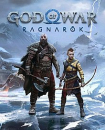No it wasn't. Why do people act like supporting an old platform somehow is going to make the next product cycle any easier it doesn't.
You have to start from 0 again and no one gives on shit about your last system the moment the new cycle starts. That's how it works for everyone, Nintendo included. It's like sports, no one cares if you won the championship the previous season when play starts for the new season, you have to prove yourself all over again.
Like they could have supported the DS for an extra year too ... and then what? It wouldn't have changed any of the challenges the 3DS faced. If you are unprepared and lazy at the beginning of a generation, that's on your poor company leadership.
The Wii was floundering as is because it wasn't unique anymore to begin with by 2010. You could get the same virtual bowling/fitness games/dance like an idiot in front of the TV with both Kinect and PS Move copying the Wiimote, and on top of that the 360/PS3 also offered the full gamut of traditional third party HD gaming like Call of Duty and all that. It made the XBox 360 a much better value because why buy two different consoles when one basically does it all.
Also I mean if you look at the least supported late gen systems ... the XBox (prematurely killed off in 2004), the GBA, the GameCube (you want to cry about 6 years support for Wii? Try the GameCube where Nintendo basically gave up after 2004) and Wii U ... all these systems had mediocre late gen support or were flat out killed before 5 years.
Yet all of their successive systems were wildly successful. One generation does not have as much bearing on the next generation as people think.
Nintendo grew lazy with the success of the Wii and DS thinking they could just shit out a casual minigame-a-thon + throw in a Mario platformer with a hardware gimmick and it would = big sales. That's the real truth. They thought Nintendogs + 3D gimmick was more than good enough to sell 3DS' at $250 for months on end. They though the Wii U was all good because 2D Mario + Nintendo Land (casual minigames) + tablet gimmick was good enough.
They didn't take into account the casual audience becoming more enamored with iPhones + iPads or that eventually even the New Super Mario Bros. brand would become oversaturated. They were lazy and overestimated the loyalty of casual players (you love Nintendogs in 2006 so that means you must love it in 2011 and you'll buy a 3DS for that .... it doesn't always work that way, casuals get tired/bored of things and want the next fad, not the old one). The problems of the 3DS and Wii U are rooted largely in Nintendo becoming arrogant and thinking they could put things on "cruise control" really from about 2008 onwards. They were able to coast by for a few years just riding that momentum, but eventually it bit them in the ass.
































































